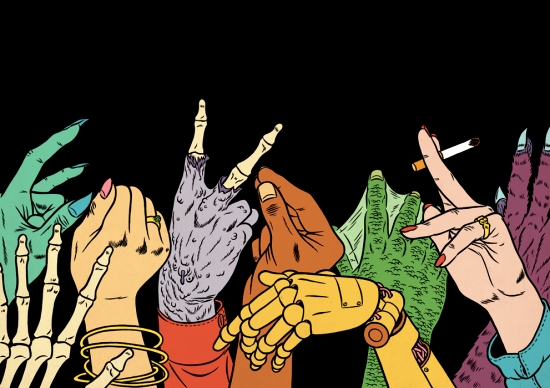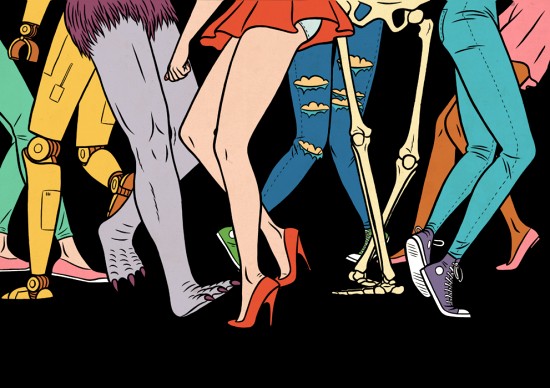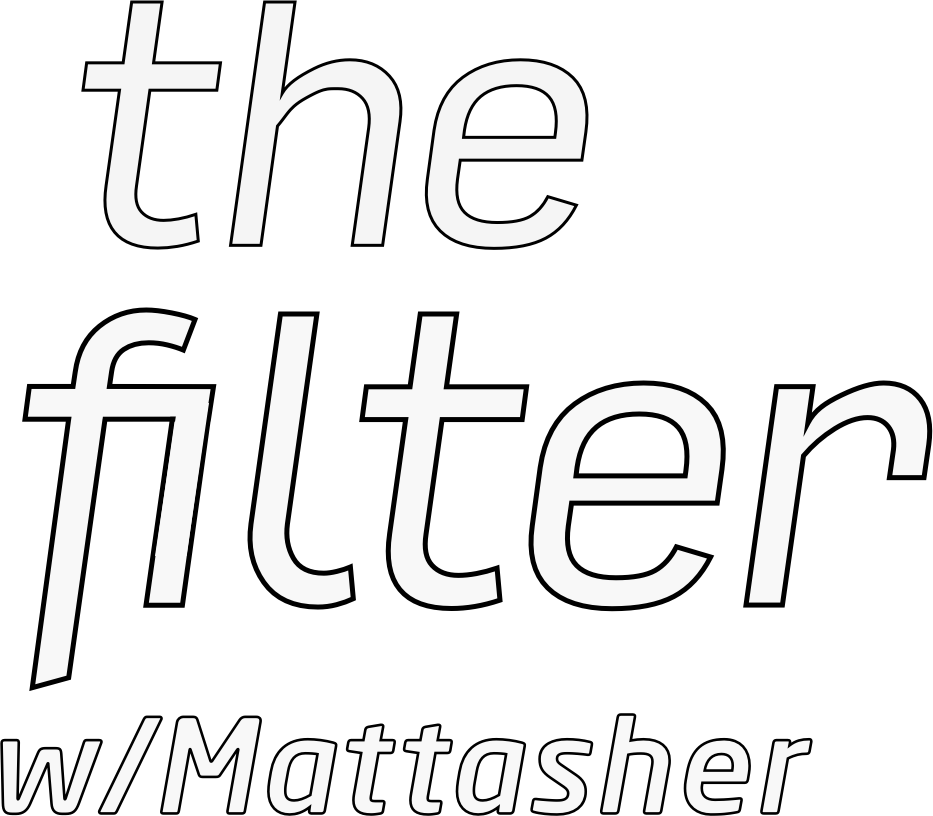
Obviously I haven’t been posting much recently. I’ve got a problem. Others have written before about the perils of spending all your time connected to the internet. The NADD, the ADD, the email twitch. I have a related problem. Perhaps specific to the particular way I work online, but I suspect others might be having similar issues as well….
I spend all of my time ignoring information. Scanning pages. Clicking “Next”. Deleting spam. Browsing headlines. Can I ignore this? Can I move on now? These are the questions in my mind all the time. I spend my days looking for reasons to move on as quickly as possible from every bit of information. I’m not looking for reasons to learn more, I’m looking for reasons to learn less. To remain ignorant.
In part, this way of being is defensive; there’s just so much information out there. So many images, so many stories, videos, songs. I don’t have time to examine even a thousandth of what I see to any level deeper than the grooves on your cutting board. So why not examine less but at a deeper level? Why not just pick the good stuff, the cream, the icy frosting on top of the crap-cake that is the web and savor every sweet bite?
A couple reasons. One is my day (and night) job. I look for arbitrage opportunities in semi-liquid, online-tradeable markets. “Arbitrage” is just a fancy word for buying low and selling for just a little bit more, except you do it in real time, super-quick turn around, faster than cats. These opportunities come up then disappear again within months, weeks, or even just a few days. For every promising prospect I examine, there are thousands of apparent dead ends. The virtual world is a coal mine where some folks break their backs digging out tons of low-priced carbon; I look for the shiny stones. As I scan the walls, I want to spend as little time as possible picking at a worthless stake. Even when I think I’ve found something interesting, most of my effort goes into looking fore reasons to quit investigating. To pull back, move on.
So why bother? That one gem, that golden vein in this overworked metaphor, could be worth a whole year’s salary, maybe more. It’s happened before. It will happen again. Meanwhile, I need to keep my eyes open to everything. Take in just enough information to move on, to ignore. Or put it in the back of my head and continue along. If I keep seeing the same thing again, in different contexts, then I might decide that it’s something worth checking out.
Another reason I scan through so much, so quickly, is likely shared by many others as well. For our brains, shiny little bits of information are like any other addictive substance. We get a tiny endorphin rush with each new image, every new idea or headline. Problem is, the rush fades as quickly as it came, leaving us hungry for another quick mental snack. So we get stuck in channel-surfing mode, always looking for something new, something different. Rarely content to settle in, turn off the wandering mind and focus hard, to put down the clicker and spend the time and energy to read, to understand.
For the past few months I’ve begun to pull back from this behavior. I’ve discovered that I really can still read an entire book, or have a slow conversations, or spend hours looking at artwork. But in order to transition into that mode, I need to disconnect from the information pipeline first. No doubt I’m missing an opportunity here or there, but at the same time I’m getting back my mind, which as we all know is a terrible thing to waste, or misplace, or scramble up with toast and eggs. I might just find it useful.

Illustrations for this post are from a music poster by Kristian Hammerstad.

Nice article. I like to read articles about web design, SEO and etc. I have 3803 bookmarks at the moment and most of them are bookmarked to read/check later. But I don’t think I will have time to go back and read/check those things because I still spend most of my time to find new things. Recently I have taken off about 1800 starred items from my Google reader without even checking it again. I also have 1185 favorites in Twitter and I will take off it too very soon. What I really want do now is go deeper level to things I really need to know as you have mentioned in your article. So as the first step I started to print most important articles and read.
I really wanted to know everything that happened in the IT field. But I now know it’s impossible :).
Perhaps a Slow Net movement is needed.
As you say, there is so much on the net. Not to sound high and mighty, as I’ve been a net junkie at times, but I’ve developed a plan of sorts, wherein I’ve scheduled studio time FIRST! Then with the aid of stats and responses to what I do on the web, I developed a weekly browsing, posting, commenting, etc. scheme. Not perfect, but sure did get me back in my studio where I belong!
Great post, thanks.
Loved reading your post! Totally and completely understand you. Well anyway I can say I feel the same 🙂 I realized I must take a step back (or more) from the computer (or any device that capture my brain and makes it float for a while). It’s saner that way. I think. 🙂 There are still trees and flowers out there… not photos… real ones. People too…. real ones. I will go take a walk now. Thanks again for posting this article, easy to forget about “real” life nowdays.
Hi Colin,
I’d definitely be interested to read what you wrote. If it’s online feel free to link in a comment below or you can send the text to my email: for (no quotes) then the at sign then the rest of my domain name.
Cheers,
JM
Great post. I spent a bunch of time a few months back working through this question myself. It was killing me that I could spend all day “reading” on the web – also as part of my day job – but couldn’t point back to a single thing that I’d really dug deeply into when the day was out.
I wound up disconnecting to do a bunch of real reading about the effects of the internet on the brain, both positive and negative – probably some of the same stuff you’ve seen. I also did a bunch of research on productivity strategies. Ultimately, I came up with a system that I use now to try to skim efficiently, pull out the interesting items and come back later to read in depth.
I actually wrote up a paper on the topic but never really shared or published it. If this is still something you’re spending time thinking about reply to let me know. I’d be happy to share and get your thoughts.
I think the only defense against developing a short-attention span while doing any kind of long-term internet reading or research is a strict schedule. Everyone above mentions that they have to have some kind of strategy– taking walks outside, allowing only a certain amount of time to web-wandering etc. Surfing and quick internet fixes are fun and can lead to new ideas and creativity, but only with the balance of sustained, in-depth reading and working with a certain purpose.